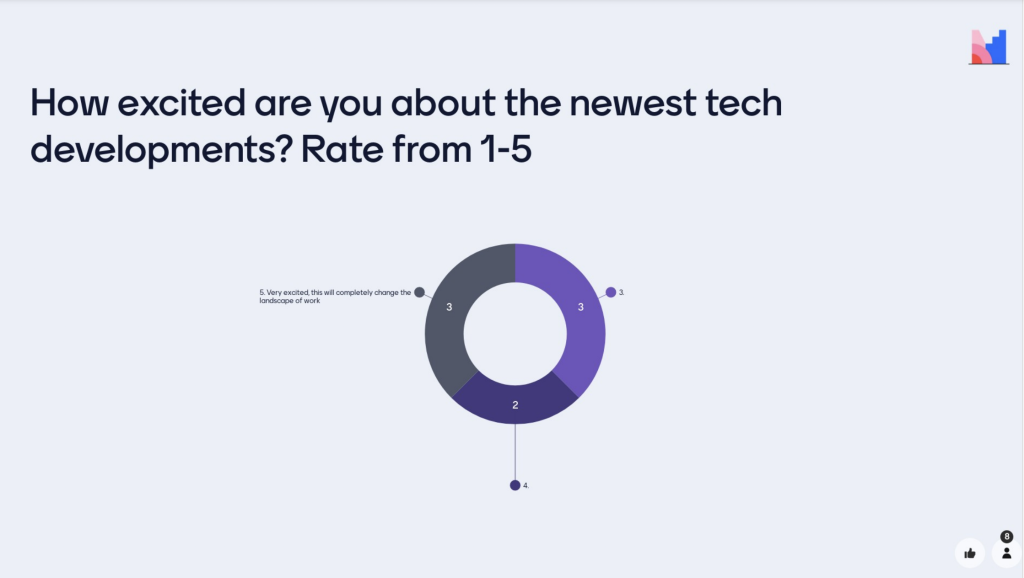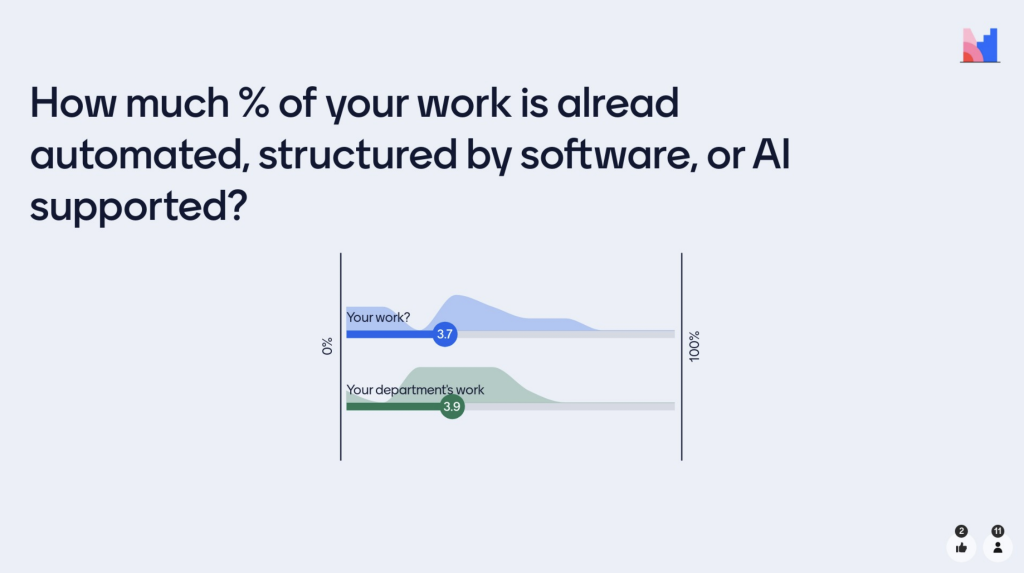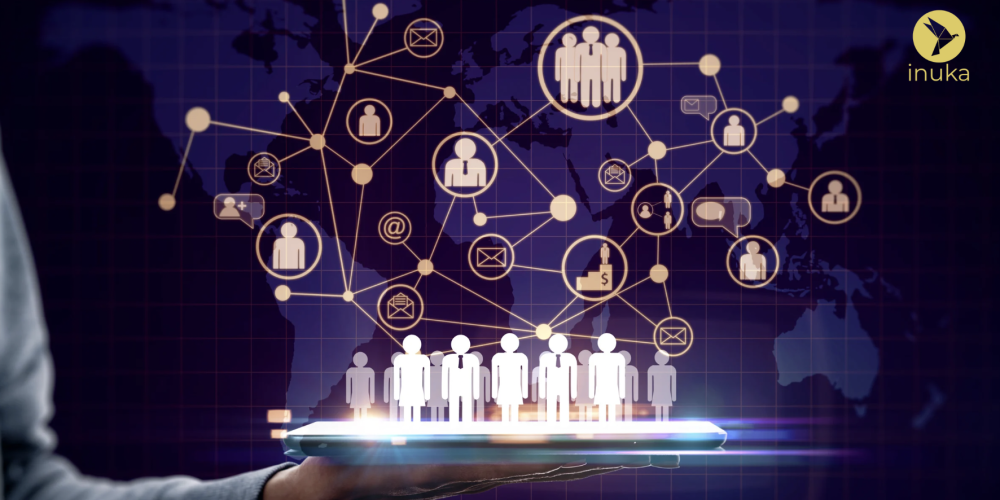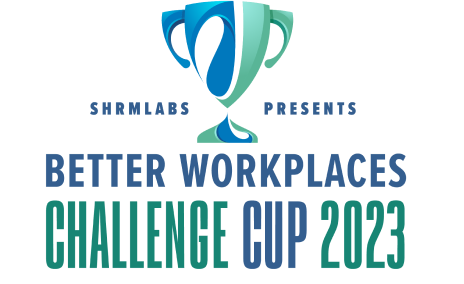In March, Inuka took a deep dive into the intersection of AI and HR with an intimate Online Round Table discussion. Guided by Wendy van Ierschot, a thought leader for People & Culture, we explored the nuances and potential of how this technology can transform peoples’ practices.
AI and Workplace Well-being
AI has the potential to revolutionise human resources and employee well-being by predicting needs and tailoring support. The promise is that it can transform personalised support, pre-empting issues and boosting performance.
At Inuka, we are testing using AI personal assistants for routine tasks, as well as to protect and guard our brand voice in all communications, and to set customer personas that we can quiz on various topics. We intentionally do not use AI chatbots for coaching, instead choosing the human and empathic connection to take centre stage.
In our curiosity as early adopters and innovators, we invited Wendy as an expert and thought leader, to provide her insights on the matter, enabling a robust and interesting discussion.
Key Takeaways from Roundtable
Highlights from the Roundtable include these important points:
- There is a mixed level of excitement about how these professionals can leverage it, balanced with a responsibility to protect people from harm (of bias, lack of fairness, used in autopilot mode etc).
- There was a reflection on what role HR should play in the business (for example, should HR professionals focus on training managers across the business on how to implement AI appropriately?).
- Key drivers were related to understanding and increasing employee well-being, engagement and experience, rather than to increasing productivity.
- Use cases were considered very interesting to make the topic more practical, including efficiency in recruitment, understanding of workforce groups and needs, performance management, and using AI as a personal assistant.
- Some professionals struggled with knowing where to start. The most accessible starting point appeared to be a focus on the data analysis and insight potential, for example gaining insights into reasons for attrition.
- All participants shared a strong belief that AI should be used as a GPS or a tool for augmentation, rather than having it “driving the car”.
- Many participants shared an interest in getting familiar with AI, with an intention to implement some type of strategy in their daily activities in the near future.
- The input affects the output. More important than what comes out of these tools is what we feed them, the data they have at their display and the prompts we give them.
- Some problems and issues that we currently have with AI, are also problems that we already need to tackle outside this technology. For example, racist bias, etc.
- Finally, no matter our work field – we should understand the opportunities and dangers of this technology. We all have accountability.

Use cases of AI in the Human Resource Sector
The participants showed a keen interest in understanding the tangible benefits of AI and some of its implementations. This discussion aligns with Inuka’s commitment to nurturing workplace well-being and it enhanced the idea that, used correctly, AI can empower professionals to foster a thriving, resilient workforce.
- Employee Engagement and Well-being: The use of AI can offer minorities, migrants, carers and others more effective support for their well-being.
- Efficiency and Time Savings: AI can help automate routine tasks (such as resume screening, scheduling interviews, and answering common employee inquiries).
- Improve Decision-Making: AI can assist teams in making informed decisions based on patterns and analytics rather than intuition alone.
- Predictive Analytics: AI can forecast trends and outcomes (such as employee turnover, engagement, and performance data) enabling HR to take proactive measures in talent management and retention strategies.
By leveraging Artificial Intelligence, human resources departments can become more efficient, strategic, and responsive to employee needs, ultimately contributing to a more dynamic and supportive work environment.

Debunking Myths
In the fast-paced world of human resources, AI has been spoken of as a transformative force. However, as with any groundbreaking technology, there are misconceptions and myths surrounding its application.
Unravelling these myths is crucial to understanding how AI can be effectively integrated into people strategies, enhancing efficiency, and performance and ultimately making working a better experience for people. Let’s delve into some common myths and uncover their truths!
🤖 Myth 1: AI Will Replace Human Resources Professionals
🙌 Truth: AI is designed to assist professionals, not replace them. By handling repetitive tasks, it helps save time and minimise mistakes. This shift allows teams to dedicate more energy to strategic initiatives and activities centred around people.
🫂 Myth 2: AI Makes Relations Impersonal
🙌 Truth: In fact, AI can help personalise functions by examining data to grasp the unique needs and preferences of each employee or employee group. This can enable communication and support that are more specifically tailored to individual requirements.
🙆 Myth 3: AI Is Biased and Unfair
🙌 Truth: While AI systems might mirror biases from their training data, through meticulous design, rigorous testing, and continuous oversight, they can aid in pinpointing and diminishing biases within operations, thus fostering greater fairness.
💸 Myth 4: Implementing it Can Be Too Complex and Expensive
🙌 Truth: AI solutions vary widely in complexity and cost. Many are designed to integrate with existing systems, making them more accessible and manageable for organizations of different sizes. Understanding these helps in making informed decisions.




